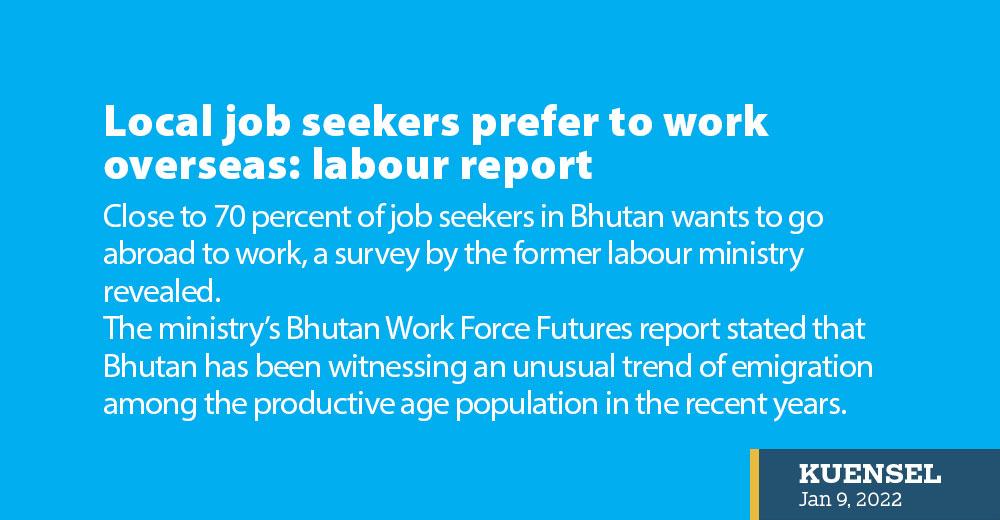KP Sharma
Close to 70 percent of job seekers in Bhutan wants to go abroad to work, a survey by the former labour ministry revealed.
The ministry’s Bhutan Work Force Futures report stated that Bhutan has been witnessing an unusual trend of emigration among the productive age population in the recent years.
The job seekers are mostly leaving to Australia and other popular destinations like the USA, Canada, United Kingdom, and also to Middle East countries. The respondents to the survey and those who wanted to work abroad comprised of “both highly qualified and low-skilled individuals.” The report stated that the emigrants include both public sector officials who have resigned and job seekers in general.
The job seekers survey showed that around 70 percent of the productive age population seek for over sea employment.
“A continuous emigration of working age population from Bhutan may be both an opportunity and challenge”, the report stated.
The emigration of low skilled workers is expected contribute to poverty reduction and economic growth through remittances.
According to Royal Monetary Authority, Bhutan received remittance inflow of Nu 8.062 billion in 2021.
The report also stated that high skilled migrants have lower propensity to remit from given flow of earnings.
The report suggested for appropriate policy adjustment to maximise gains through channeling “Diaspora investments and minimise risk of losing the country’s most educated and talented workforce.”
The report showed that the majority of the job seekers are willing to seek oversea employment. As per the survey, 66 percent of the job seekers said that they intended to pursue overseas employment. While 20 percent of the respondents were not sure, 14 percent said that they don’t want to go abroad.
According to the report, social protection schemes are mostly limited to employees of public sector and pointed out lack of such social protection schemes in private sector. This is one of the reasons according to many of those going abroad for work.
As per the ‘Establishment Survey and Employee Survey’, there is a general lack of social protection schemes for the employees. “The current firms particularly Cottage and Small Industries do not have high established social protection system.”
Going by the survey, only 6.3 percent of these CSI firms reported to have social protection coverage and spending in the form of Group Insurance Scheme (GIS).
The report also highlighted on the lack of data on skills and educational mismatches in the country. “There is limited data on specific forms of mismatches across sectors and demographic.”
It suggested that having specific data was important for designing education or skill matching policy to avoid the drivers of mismatches.


